by Rabbi Jeffrey Adler
Many people think of the Tanakh as a book of law and anger, judgement and destruction, in contrast to the New Covenant as being filled with love, mercy, and grace. Since God is the Author of both, and, He is not schizophrenic, His Nature and character would be consistent and the same in both. This is clearly demonstrated in II Chronicles 30.
King Hezekiah became king of Judah at the age of 25, succeeding Ahaz, his father. Ahaz had been one of the ungodliest, idolatrous, pagan of all the kings of Israel or Judah. Hezekiah quickly moved to undo the evil of his father. After becoming established on the throne, he called for a national resumption of the celebration of Passover, shockingly not observed for many years.
There was a problem, though- the people were in a state of general defilement from years of idolatry and general lack of attention to Adonai’s rites of purification. How could they observe an important event like Passover?
Hezekiah found his answer in a provision found in Numbers 9:6-7- Pesach Sheni, or Second Passover. The Lord knew that in the course of everyday life, sometimes, events occurred that caused ceremonial uncleanness, such as a death in the family where a corpse might defile. Should one be unclean through such a happenstance, the Passover, generally observed on the 14th of Nisan, the first month, could be celebrated on the 14th of the second month, Iyyar. This gracious provision allowed for those facing special circumstances to be included in this unifying event. But, the Numbers 9 provision was stated to cover isolated individuals; what about an entire nation?
Hezekiah understood that the Torah was predicated on the grace and mercy of God. He knew that Adonai was more interested in drawing His people near in principle than strict forms. He called the entire nation to Jerusalem for Passover on the 14th of Iyyar. He made a proclamation of invitation to the feast in Jerusalem, sending it out from Beer-sheva to Dan, a range that included even the northern tribes, those who were survivors of the Assyrian exile from a century before Hezekiah’s, and who had never worshiped the Lord at Jerusalem’s Temple. The king knew that the Lord loved the northern tribes, as well, and, they should have a chance to get right with God, Who “is not willing that any should perish, but, that all should come to repentance”. His proclamation begins, “You men of Israel, turn back to Adonai, the God of Abraham, Isaac, and Israel, and He will return to the remnant of you who escaped from the hands of the kings of Assyria. Do not be like your fathers and brothers who acted unfaithfully against Adonai, the God of their fathers…” In this proclamation, Hezekiah states an understanding that God is full of grace and mercy and Whose arms are open wide to receive His people in forgiveness.
Many of the northerners scorned and mocked the king’s couriers, but, some from Asher, Manasseh, and Zebulun responded and traveled to Jerusalem, possibly wondering how they would be received. They were welcomed. The priests were not all adequately sanctified for their functions, so, the Levites supplemented their efforts. Many of the regular attendees were not purified totally as Torah had required, but, still ate the Passover lambs (verse 18). Hezekiah prayed for the people: “May Adonai Who is good, atone for every one who prepares his heart to seek Adonai, the God of his fathers, even though he is not pure according to rules of the sanctuary.” Adonai heard Hezekiah and healed the people (verse 20).
The people celebrated the feast with “great gladness”(verse 21). The people enjoyed themselves so much, that, when the seven days of the feast were over, they decided to celebrate for another seven days!
The priests blessed the people, and Adonai heard their voice. Wow! All this was because our God, the God of the entire Bible, is a God of grace and mercy, not just rules. He is not willing that any should perish, but, that all should come to repentance.
Rabbi Jeffrey Adler is president of the Board of HaShomer and also Rabbi of Sha’arey Yeshua in Indianapolis, IN.
